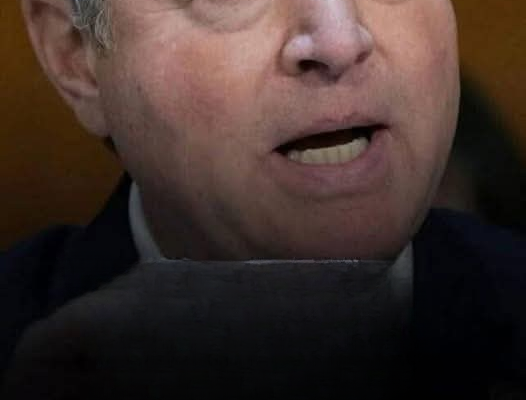Freshly unsealed FBI interview summaries are once again putting political spotlight on Senator Adam Schiff. According to the documents, a whistleblower alleged that Schiff may have authorized the leaking of classified information during the peak of the Trump–Russia investigation — leaks that, according to the source, were politically damaging to then-President Donald Trump.
The records, obtained through investigative reporting by Just The News, provide detailed accounts of statements made to the FBI between 2017 and 2023. The whistleblower is described as a Democratic intelligence officer who served directly under the House Intelligence Committee, which Schiff helped oversee. At the time of the alleged incidents, Schiff was not yet chairman but was the ranking Democrat on the committee. He would later ascend to the chairman’s seat, overseeing some of the most contentious hearings of Trump’s presidency.
These revelations add another layer to one of the most polarizing investigations in modern U.S. history, reviving questions about transparency, political motivations, and the blurred lines between national security and partisan politics.
A Look Back at the Trump–Russia Investigation
To understand the significance of these new documents, it is important to revisit the broader political and historical context.
The Trump–Russia investigation began in 2016 after U.S. intelligence agencies concluded that Russia had interfered in the presidential election. The central question was whether members of Trump’s campaign had coordinated with Moscow. The investigation led to special counsel Robert Mueller’s appointment in 2017, producing a multi-year inquiry that captivated the nation.
Schiff, as the top Democrat on the House Intelligence Committee, became one of the most visible and vocal critics of Trump throughout this period. He frequently appeared on television, providing commentary about the seriousness of the allegations and warning about potential threats to U.S. democracy. Supporters saw Schiff as a defender of truth and accountability, while critics accused him of exaggerating evidence and using his platform for partisan purposes.
What the Newly Released FBI Records Reveal
The FBI interview summaries suggest that Schiff’s office may have played a more direct role in how information reached the public. According to the whistleblower cited in the documents, Schiff allegedly approved the selective leaking of classified material from intelligence briefings. The claim is that these leaks were not accidental but deliberately designed to frame Trump and his allies in a damaging light.
The whistleblower told investigators that committee staffers were sometimes directed to share sensitive details with media outlets, knowing those details would fuel headlines. The documents do not confirm that classified material was leaked directly, nor do they establish criminal wrongdoing by Schiff, but they raise serious questions about how congressional oversight was conducted during a period of heightened political division.
Schiff has previously denied accusations of leaking classified information. In past interviews, he argued that much of the information cited in media reports was already in the public domain, and that his responsibility was to ensure oversight of the executive branch. His defenders argue that whistleblower claims may reflect partisan motivations, especially given the deeply political nature of the Trump–Russia inquiry.
The Political Fallout and Public Perception
The release of these records has already sparked a heated political debate. For critics of Schiff, the allegations reinforce longstanding claims that the Trump–Russia probe was mishandled and influenced by political bias. They argue that if members of Congress allowed sensitive material to be strategically leaked, it undermines trust in government institutions and damages the credibility of legitimate investigations.
Supporters of Schiff counter that leaks have always been a part of Washington politics, often used by both parties, and that the real scandal lies in Russia’s interference and Trump’s actions during his presidency. They point out that multiple investigations, including Mueller’s final report, found evidence of troubling contacts between Trump’s associates and Russian officials, even if prosecutors did not establish a criminal conspiracy.
Public trust, however, remains fragile. For many Americans, the years of conflicting narratives — from “collusion” to “witch hunt” — left them uncertain about whom to believe. The new FBI documents risk reopening old wounds, reminding the nation how divided it became during those years.
Oversight, Transparency, and the Role of Congress
The allegations also raise broader questions about the role of Congress in overseeing intelligence matters. Congressional committees like the House Intelligence Committee are tasked with ensuring accountability within the intelligence community, reviewing classified briefings, and safeguarding national security.
But when partisan politics intersects with sensitive information, the lines can become blurred. If classified material is leaked to the press in ways that serve political ends, the very purpose of oversight can be undermined.
This tension is not new. Throughout history, members of Congress from both parties have been accused of leaking or spinning sensitive intelligence to score political points. The difference in Schiff’s case is the timing — during one of the most consequential and divisive investigations in recent memory.
Media’s Role in Amplifying the Leaks
Another critical piece of the story is the role of the media. During the Trump–Russia investigation, major newspapers and television outlets regularly published stories based on anonymous sources, many of whom were described as “officials familiar with the matter.” These leaks shaped public perception of Trump’s presidency, sometimes creating explosive headlines that dominated news cycles.
If Schiff’s office did indeed authorize the release of selective information, it raises important questions about how much of the media narrative during that period was influenced by partisan strategy rather than purely independent reporting. On the other hand, defenders of investigative journalism argue that the press was fulfilling its duty to inform the public, particularly when the stakes involved foreign interference in American democracy.
Legal Questions and Accountability
While the documents may raise ethical and political concerns, the legal implications are more complex. Members of Congress have unique protections when handling classified information, and proving intentional leaks can be challenging.
To date, no charges have been filed against Schiff or his staff in relation to leaks. Legal experts note that unless prosecutors can demonstrate deliberate mishandling of classified material with clear evidence, the matter is more likely to remain in the realm of political debate than criminal prosecution.
The Continuing Impact on Schiff’s Career
The timing of these revelations is particularly significant for Schiff, who has continued to play a prominent role in Democratic politics. After his years on the House Intelligence Committee, Schiff became a central figure in Trump’s first impeachment trial, serving as lead House manager. His national profile has only grown since then.
In 2023, Schiff announced his candidacy for the U.S. Senate seat once held by the late Senator Dianne Feinstein of California. For his supporters, he is seen as a principled leader who stood up to Trump during a turbulent time. For his critics, he embodies the hyper-partisan approach that has deepened divisions in Washington.
These newly released FBI documents could become a political flashpoint in his Senate campaign, with opponents using them to question his integrity and judgment.
Broader Lessons and the Need for Reform
Beyond the individual allegations, the controversy highlights a deeper challenge in American governance: how to balance transparency, accountability, and national security in a hyper-partisan environment.
The Trump–Russia saga revealed the dangers of allowing political motivations to seep into intelligence oversight. If the public believes that oversight committees are driven more by political strategy than by truth, confidence in democratic institutions erodes.
Some experts are calling for reforms to reduce the likelihood of leaks and improve accountability. Proposals include stricter internal protocols for handling classified material, independent oversight bodies, or clearer penalties for unauthorized disclosures. Others argue that greater transparency with the public — releasing declassified information sooner and more systematically — could reduce the temptation for leaks.
Looking Forward
As the nation reflects on these revelations, one thing is clear: the Trump–Russia investigation will continue to cast a long shadow over American politics. The release of new documents ensures that debates over Adam Schiff’s role are far from settled.
Whether these allegations prove to be substantiated or dismissed, they serve as a reminder of the challenges facing a democracy where intelligence, politics, and media intersect. Trust in institutions depends not only on the outcomes of investigations but also on the fairness and integrity of the process itself.
For now, the public is left with difficult questions: Was the oversight process during the Trump years compromised by partisanship? Were leaks weaponized to shape political narratives? And most importantly, how can the nation move forward in ensuring that intelligence oversight serves the people, not political agendas?
Conclusion
The declassified FBI records have reignited debate about Senator Adam Schiff’s conduct during one of the most turbulent investigations in recent history. While definitive proof of wrongdoing remains elusive, the allegations raise serious ethical and political questions that resonate beyond one individual’s career.
At its core, this controversy is not only about Schiff or Trump but about the health of American democracy. When the public perceives that politics and national security are entangled in ways that erode trust, the very foundations of governance are at risk.
As the story develops, Americans will be watching closely — not only for answers about the past but also for guidance on how to build stronger, more trustworthy systems for the future.



